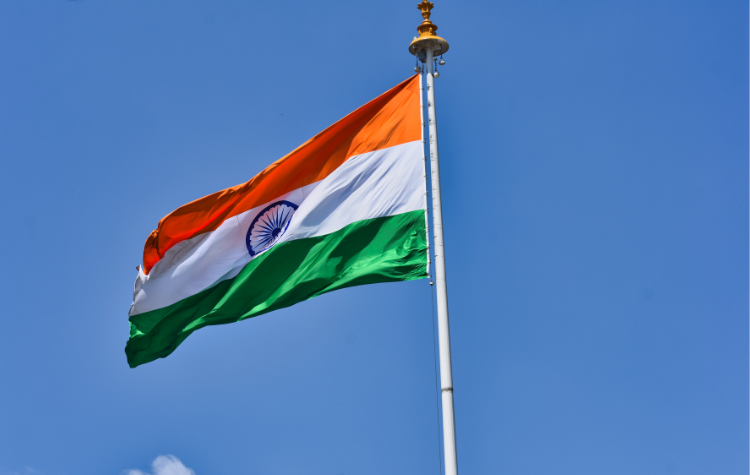The joint European Union (EU)-India press release, which provides a summary of the topics discussed during the 10th EU-India human rights dialogue which took place on 15 July 2022 in New Delhi, fails to adequately address pressing issues of security and reprisals faced by human rights defenders in India, five human rights organizations said today. The organizations expressed their disappointment in the EU’s apparent failure to raise concern about the systematic attacks on civil society actors in India.
While both parties reiterated their commitment to the promotion and protection of human rights in the joint EU-India press release, there was no mention of any concrete action to be taken to ensure the ending of reprisals and persecution against human rights defenders, the release of jailed defenders and to prevent the adoption and abuse of restrictive laws, including anti-terror laws.
The joint EU-India press release from the dialogue makes specific mention to “the importance of safeguarding the freedom, independence and diversity of civil society actors, including human rights defenders and journalists, and respecting freedom of association and peaceful assembly”. While this is an important acknowledgment, it must be backed by corresponding action to end persecution and immediately release jailed human rights defenders.
Indian rights defenders need immediate support and an end to systematic attacks, threats and arbitrary arrests. Of the 16 defenders arrested in relation to the Bhima Koregaon case, 13 remain in jail. On 5 July 2021, 84-year-old Stan Swamy died in custody due to the lack of medical treatment. There has been no public acknowledgment of the State’s complicity in his incarceration and death. Six defenders out of these arrested for participating in the peaceful campaign against the Citizenship Amendment Act remain in jail. In November 2021, Kashmiri human rights defender Khurram Parvez was arrested and remains incarcerated on spurious charges. In June 2022, Teesta Setalvad was jailed as a direct reprisal for her campaign for accountability and justice for victims of the 2002 Gujarat riot. Many other defenders, including indigenous women seeking justice, are jailed and labelled as terrorists due to their human rights work. The joint EU-India press release fails to address any of these cases, or to acknowledge the general worsening of the human rights situation in India.
The targeting of defenders is well-known, and has a direct impact on their safety, their families, and the communities they represent. Vague commitments on human rights and safeguarding freedoms and defenders no longer suffice. The scale of the violence and punishment for peaceful defense of human rights in India requires a proportionate and public response and a demand for accountability for continued violations. In the face of the blatant disregard for national standards and international commitments, particularly important in light of India’s global presence and membership to the United Nations Human Rights Council, the EU must take a public stand on patterns of reprisals and individual cases.
The joint EU-India press release also recognizes “the importance of strengthening national and international human rights mechanisms for the protection and promotion of human rights and the important role of national human rights institutions, civil society actors and journalists”. However, it falls short of addressing laws in India that are routinely used to target human rights defenders and the failure of the National Human Rights Commission of India to proactively intervene in cases where defenders are targeted. The use of the Unlawful Activities Prevention Act (UAPA) and the Foreign Contributions Regulation Act (FCRA) and their impact on the human rights defenders’ ability to work safely requires more direct and public attention. The FCRA has been used to block much needed funds, freeze bank accounts, and subject NGOs to investigations, creating a chilling effect for civil society.
We acknowledge the EU-India human rights dialogue as an opportunity for both parties to speak on important issues of human rights. However, recognition of the work of human rights defenders and of marginalized communities in the country will be visible based on tangible outcomes, including public statements that reflect clear human rights benchmarks. Failure to do so is a missed opportunity and may serve to further embolden India to violate human rights with impunity.
We call on the EU and member states to ensure that there is strong follow up to the dialogue and a commitment to hold India accountable for its treatment of human rights defenders in the country. The targeting of defenders through the use of national institutions, including arbitrary arrests and judicial harassment, must be strongly condemned and individual cases should be publicly raised. The EU must also support human rights defenders by observing trials and undertaking visits to defenders in prisons. Effective protection for human rights defenders requires adhering to concrete human rights standards and taking action beyond the annual human rights dialogue between parties.
Signed
- Asian Forum for Human Rights and Development (FORUM-ASIA)
- CIVICUS: World Alliance for Citizen Participation
- Front Line Defenders
- World Organisation Against Torture (OMCT), within the framework of the Observatory for the Protection of Human Rights Defenders
- International Federation for Human Rights (FIDH), in the framework of the Observatory for the Protection of Human Rights Defenders
**
For the PDF version of this statement, click here




